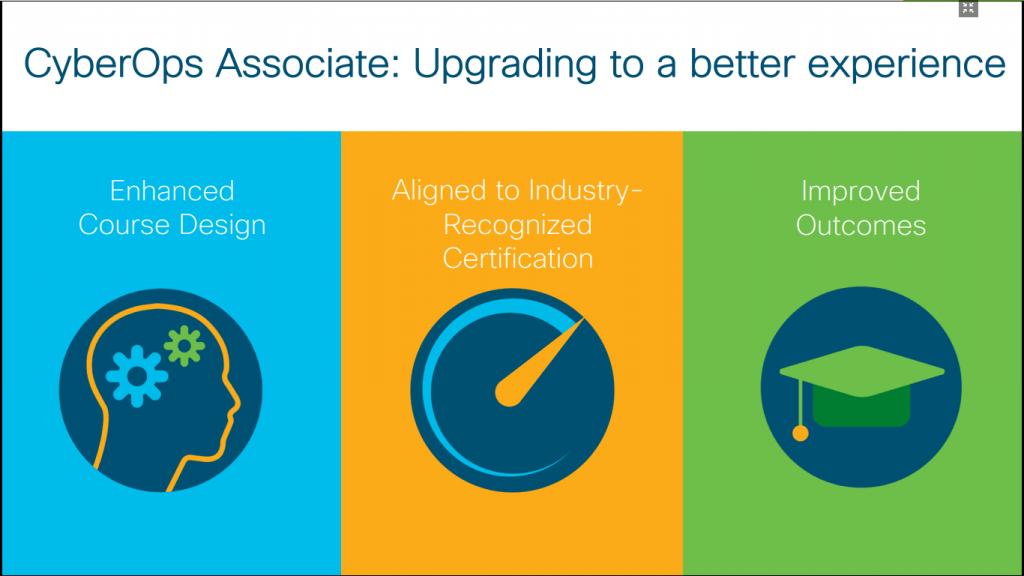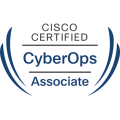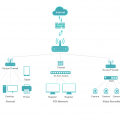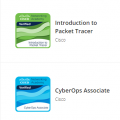- May 22, 2021
- Posted by: SouTech Team
- Category: Blog, CISCO, Cyber-security and Ethical Hacking Training, Ethical Hacking and Kali Linux Free Training
Watch below 5mins video for overview, curriculum, benefits and why you need to attend the training program>>>
Join TRAINING ROOM Free:
https://chat.whatsapp.com/Eo2e0XgeMalCqmfRfOfDLF
Become a Cybersecurity Operations Center(SOC) Tier 1 Analyst
10 Days Remote Training
https://youtube.com/playlist?list=PLmi6GtTayDkeMVTTktKD56AUoGovV5ubG
( access training content ,subscribe, start learning, take notes, join mentorship room for lab/hands on guide)
28 Modules, 50 Labs, 2 Certification
Get this certification in 30Days
Fill Training Form here to get access to CyberOps Hacking Machine and Other Details
https://forms.gle/hbwtTRJNCrYZey6r5
Every day by 6pm GMT we go live: Subscribe to our youtube Channel to get notification
(Ignore if you have already subscribed)
Subscribe to Youtube-Tech Training Channel
Download Training Slides Here:
Download Cisco CyberOps Training Slides
Here is what you can get after your training and exam:
https://credly.com/badges/69e042b2-a764-4161-8903-db2eade76d16
Mentorship and Certification via Cisco Academy available
Mode : WhatsApp, Zoom, YouTube
Download Virtual Machines
Virtual Machine and Lab Files
Instruction on how to set up your virtual machine
Introduction
Today’s organizations are challenged with rapidly detecting cybersecurity breaches and effectively responding to security incidents. Teams of people in Security Operations Centers (SOCs) keep a vigilant eye on security systems, protecting their organizations by detecting and responding to cybersecurity exploits and threats. CyberOps Associate prepares candidates to begin a career working as associate-level cybersecurity analysts within security operation
Target Certification
This course aligns with the Cisco Certified CyberOps Associate (CBROPS) certification. Candidates need to pass the 200-201 CBROPS exam to achieve the Cisco Certified CyberOps Associate certification. The CBROPS exam tests a candidate’s knowledge and skills related to security concepts, security monitoring, host-based analysis, network
intrusion analysis, and security policies and procedures.

Course Description
The course has many features to help students understand these concepts:
• The course is comprised of twenty-eight (28) modules. Each module is comprised of topics.
• Modules emphasize critical thinking, problem solving, collaboration, and the practical application of skills.
• Each module contains some way to practice and assess understanding, such as a lab or a Packet Tracer activity. These module-level activities provide feedback and are designed to indicate learner’s mastery of the skills needed for the course. Learners can ensure their level of understanding well before taking a graded quiz or exam.
• Some topics may contain a Check Your Understanding interactive quiz, or some other way to assess understanding, such as a lab or a Packet Tracer. These topic-level assessments are designed to tell learners if they have a good grasp of the topic content, or if they need to review before continuing. Learners can ensure their level of understanding well before taking a graded quiz or exam. Check Your Understanding quizzes do not affect the learner’s overall grade.
• Rich multimedia content, including interactive activities, videos, and quizzes, addresses a variety of learning
styles and helps stimulate learning and increase knowledge retention.
• Virtual environments simulate real-world cybersecurity threat scenarios and create opportunities for security
monitoring, analysis, and resolution.
• Hands-on labs help students develop critical thinking and complex problem solving skills.
• Innovative assessments provide immediate feedback to support the evaluation of knowledge and acquired
skills.
• Technical concepts are explained using language that works well for learners at all levels and embedded
interactive activities break up reading of the content and help reinforce understanding.
• The curriculum encourages students to consider additional IT education, but also emphasizes applied skills
and hands-on experience.
• Cisco Packet Tracer activities are designed for use with Packet Tracer 7.3.0 or later.

Course Objectives
CyberOps Associate v1.0 covers knowledge and skills needed to successfully handle the tasks, duties, and
responsibilities of an associate-level Cybersecurity Analyst working in a Security Operations Center (SOC).
Upon completion of the CyberOps Associate v1.0 course, students will be able to perform the following tasks:
● Install virtual machines to create a safe environment for implementing and analyzing cybersecurity threat
events.
● Explain the role of the Cybersecurity Operations Analyst in the enterprise.
● Explain the Windows Operating System features and characteristics needed to support cybersecurity
analyses.
● Explain the features and characteristics of the Linux Operating System.
● Analyze the operation of network protocols and services.
● Explain the operation of the network infrastructure.
● Classify the various types of network attacks.
● Use network monitoring tools to identify attacks against network protocols and services.
● Explain how to prevent malicious access to computer networks, hosts, and data.
● Explain the impacts of cryptography on network security monitoring.
● Explain how to investigate endpoint vulnerabilities and attacks.
● Evaluate network security alerts.
● Analyze network intrusion data to identify compromised hosts
● Apply incident response models to manage network security incidents
Download Course Summary- CISCO :>>> Download CyberOops Highlights
CyberOps Associate Course – Curriculum
Module 1 – The Danger
Module 2 – Fighters in the War Against Cybercrime
Module 3 – The Windows Operating System
Module 4 – Linux Overview
Module 5 – Network Protocols
Module 6 – Ethernet and Internet Protocol (IP)
Module 7 – Connectivity Verification
Module 8 – Address Resolution Protocol
Module 9 – The Transport Layer
Module 10 – Network Services
Module 11 – Network Communication Devices
Module 12 – Network Security Infrastructure
Module 13 – Attackers and Their Tools
Module 14 – Common Threats and Attacks
Module 15 – Network Monitoring and Tools
Module 16 – Attacking the Foundation
Module 17 – Attacking What We Do
Module 18 – Understanding Defense
Module 19 – Access Control
Module 20 – Threat Intelligence
Module 21 – Cryptography
Module 22 – Endpoint Protection
Module 23 – Endpoint Vulnerability Assessment
Module 24 – Technologies and Protocols
Module 25 – Network Security Data
Module 26 – Evaluating Alerts
Module 27 – Working with Network Security Data
Module 28 – Digital Forensics and Incident Analysis and Response
WOW!!!
Start your training TODAY!
Contact your course adviser on WhatsApp: 08034121380
Download Course Sheet here:>>> Download CyberOops Course Outline
Training Locations: SOUTECH Abuja, Owerri, Lagos and Virtual/Online




